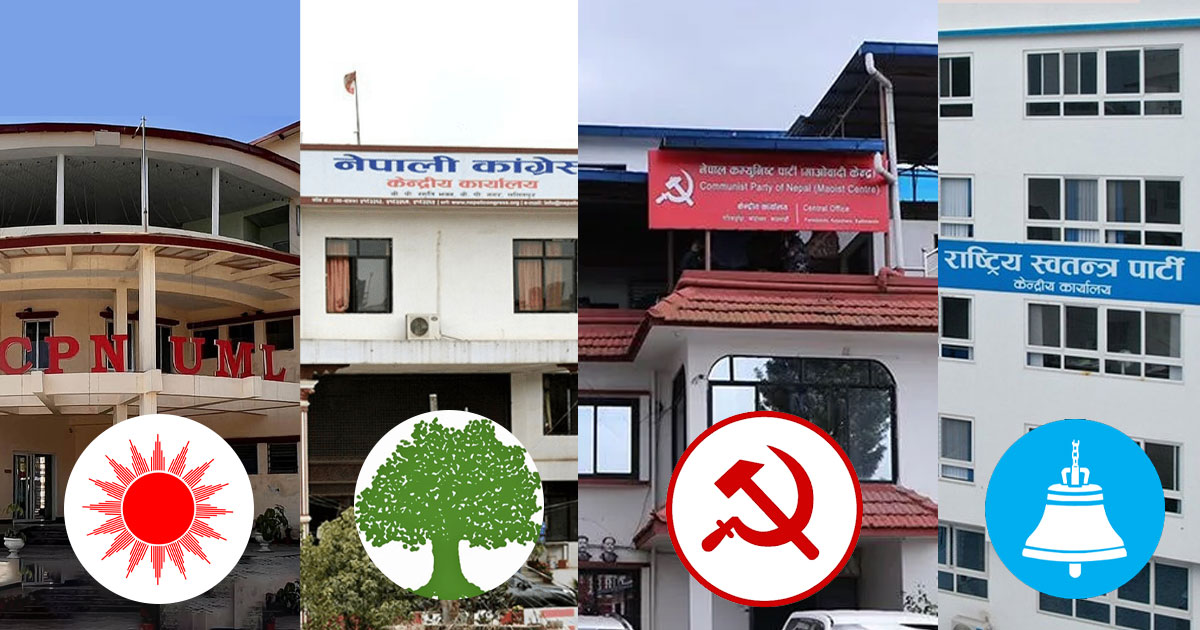

KATHMANDU: The Communist Party of Nepal-Unified Marxist-Leninist (CPN-UML), Nepal’s second-largest parliamentary party, has been revealed as the wealthiest political entity in the country, with savings of Rs. 69.3 million for the fiscal year 2080/81 (2023/24). According to financial disclosures submitted to the Election Commission, the UML reported an income of Rs. 147.9 million and expenditures of Rs. 78.5 million.
The party’s primary source of revenue was membership fees, which contributed Rs. 115.4 million to its total earnings. This financial advantage sets the UML apart, as other major political parties struggle with significant deficits.
The Nepali Congress, the largest party in parliament, reported a shortfall of Rs. 23.2 million during the same period, earning Rs. 25.9 million but spending Rs. 49.1 million. Donations accounted for Rs. 17.4 million of its income, followed by Rs. 7.1 million from membership fees, levies, and renewal charges. The Congress Party also reported losses in the previous fiscal year.
The Communist Party of Nepal-Maoist Centre, the third-largest party, narrowly overspent its Rs. 18.6 million income, ending with a small deficit of Rs. 2,444. Meanwhile, the Rastriya Swatantra Party (RSP), the fourth-largest party, faced a severe deficit, with expenditures of Rs. 65 million nearly doubling its Rs. 37.9 million earnings, leaving a shortfall of Rs. 27 million.
The Unified Socialist Party also reported a deficit of Rs. 3.2 million, earning Rs. 42.4 million but spending Rs. 45.7 million. The Janamat Party, a smaller political group, posted a minor deficit of Rs. 29,390, slightly exceeding its Rs. 11.8 million income.
Under Nepal’s Political Parties Act of 2073, all political organizations are required to audit their finances annually and submit reports to the Election Commission. Of the 115 registered parties, 88 complied during the fiscal year 2080/81, filing detailed accounts of their income and expenditure.
These financial disclosures underscore the growing fiscal challenges for many of Nepal’s political parties, in stark contrast to the UML’s strong financial position.